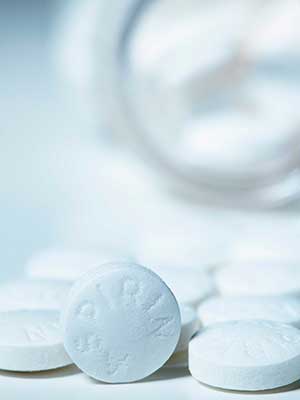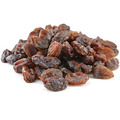Aspirin: get the facts
It can beat pain, prevent blood clots and may even protect against cancer - but aspirin is still the subject of continuing medical debate. Here's all you need to know about this everyday remedy... By Jane Murphy

What is aspirin?
Aspirin is an analgesic, anti-inflammatory drug that's used to treat minor aches, pains and fevers. In lower doses, it's also used as an antiplatelet medication to reduce risk of heart attack and stroke. It's usually taken in tablet, caplet or capsule form.
So how exactly does it work?
Let's start with the painkiller effect first. As an anti-inflammatory, aspirin works by blocking the effects of chemicals called cyclo-oxygenase enzymes - or COX enzymes for short. Left to their own devices, these COX enzymes encourage the production of prostaglandins - chemicals that contribute to pain and inflammation.
However, aspirin isn't as effective as other painkillers, such as paracetamol and ibuprofen - so it's generally just used as a quick over-the-counter fix for mild aches and pains.
And its antiplatelet properties? Platelets are tiny blood cells, which stick together to form clots whenever there's a cut in a small blood vessel. Aspirin works by reducing the ability of these platelets to stick together. It's usually prescribed in daily doses of 75mg.
Any other notable benefits?
There's also strong evidence to suggest aspirin may reduce the chances of developing or dying from bowel, stomach and oesophageal cancers. Scientists at Queen Mary University of London examined 200 studies investigating the pros and cons of taking aspirin. Their conclusion? If everyone aged 50 and above in the UK took small daily doses of the drug for a decade, 122,000 deaths could be prevented in the next 20 years.
Great - I'll start taking it every day then...
Hold your horses! Balanced against the 122,000 lives that might be saved, scientists also predict that around 18,000 people could die from side effects of taking aspirin. The main reason? The flipside of the antiplatelet effect is, of course, that it increases risk of internal bleeding. So aspirin should never be taken if you have a bleeding disorder or severe liver or kidney problem.
The drug can also interact with other medications, and may cause problems if you have asthma, heavy periods or a history of gout.
Commenting on the Queen Mary University of London research review, Julie Ward, senior cardiac nurse for the British Heart Foundation, says: 'This study confirms that only people who have had a heart attack, or are at high risk of having one, benefit from taking aspirin to prevent future cardiac events. This is in line with current prescribing guidelines. But serious bleeding is a possible side effect of taking aspirin, particularly for the elderly. Therefore no-one should take aspirin regularly without discussing their personal risks and potential benefits with their doctor.'
And despite the promising research results, aspirin isn't being fully embraced as an anti-cancer medication just yet. 'Aspirin is showing promise in preventing certain types of cancer, but it's vital we balance this with the complications it can cause,' says Dr Julie Sharp from Cancer Research UK. 'Before it can be recommended for cancer prevention, some important questions need to be answered and tests need to be developed to predict who is likely to have side effects.'
Put simply, you should only ever take aspirin as a preventative medication on the advice of your doctor.
Anything else I should know?
Even if you only take the occasional aspirin for its painkiller effects, always read the leaflet - and do remember it can sometimes cause stomach upsets and nausea. If you experience these - or any other side effects, such as an allergic reaction - stop taking the medication and consult your pharmacist or GP for advice.
Where can I find out more?
For more information about heart disease and stroke prevention, contact the British Heart Foundation or the Stroke Association. And to learn more about cancer prevention, contact Cancer Research UK,
Further details about aspirin's antiplatelet properties are available on the NHS website - or talk to your GP.
You might also like...
Kill that pain naturally
Pain and how to cope with it
Say goodbye to joint pain










